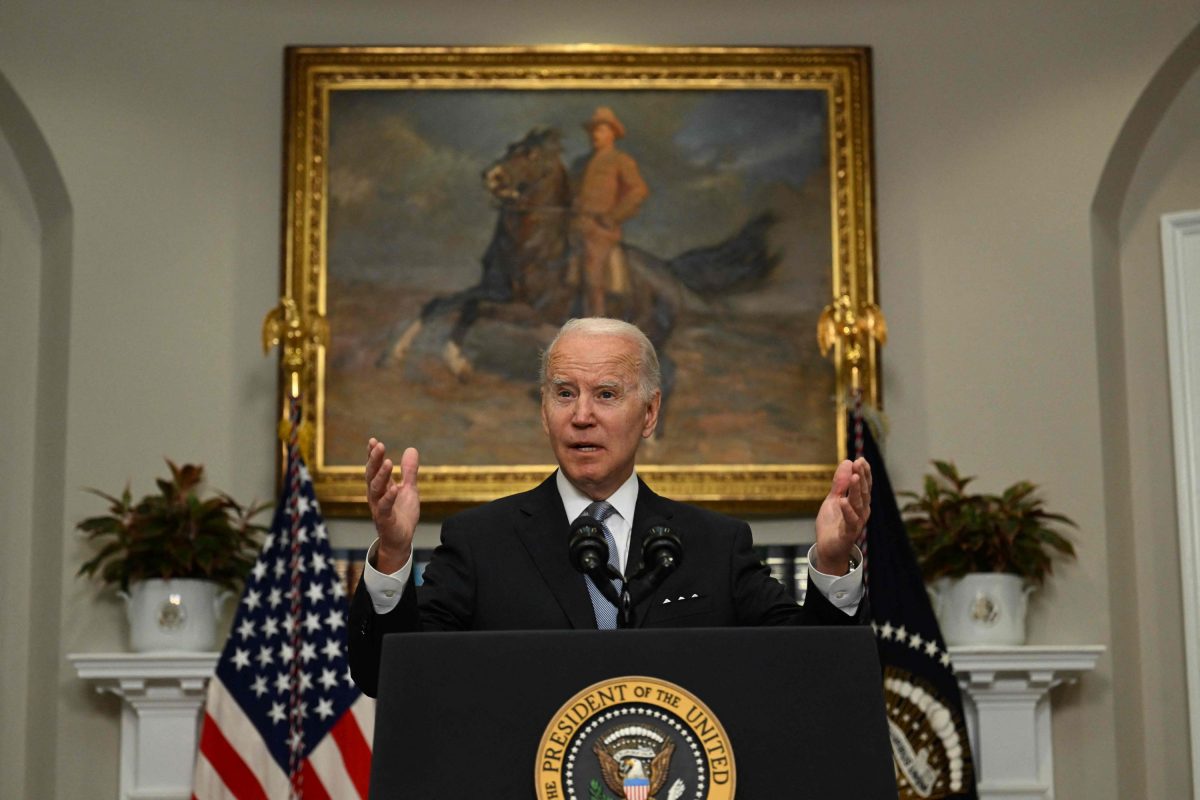WASHINGTON, (Reuters) – An “elderly” President Joe Biden will not face charges for knowingly taking classified documents when he left the vice presidency in 2017, a prosecutor said yesterday, drawing a swift rebuke from the president as he seeks reelection.
Special Counsel Robert Hur said in a report that he opted against bringing criminal charges following a 15-month investigation because Biden cooperated and would be difficult to convict, describing him as a “well-meaning, elderly man with a poor memory.”
Biden, in an angry rebuttal, said his “memory was fine.” Brimming with emotion during remarks at the White House, he lashed out at the attorney’s suggestion that he had forgotten when his son, Beau, had died and said the accusation that he had willfully kept the classified material was “just plain wrong.”
Hur’s conclusion ensures that Biden, unlike his expected 2024 presidential rival Donald Trump, will not risk prison time for mishandling sensitive government documents.
But it will cause further embarrassment for Biden, 81, as the oldest person ever to serve as U.S. president tries to convince voters that he should serve another four-year term.
“Mr. Biden would likely present himself to a jury, as he did during our interview of him, as a sympathetic, well-meaning, elderly man with a poor memory,” wrote Hur, who served as the top federal prosecutor in Maryland during the Trump administration and was tapped to lead the Biden probe by Attorney General Merrick Garland in January 2023.
Biden noted that the special counsel drew a distinction between him and Trump, 77: Biden returned the documents while Trump allegedly declined to do so.
The president, who earlier this week referred to a conversation he had with Angela Merkel in 2021 as having taken place with the late German Chancellor Helmut Kohl, pushed back against descriptions of his recall.
“My memory is fine,” he said, adding he was glad that a special prosecutor had looked into the case.
At one point during his remarks Biden appeared to confuse the presidents of Mexico and Egypt.
Trump has described the four criminal prosecutions he faces — including one for his handling of classified documents — as politically motivated. He has claimed, without evidence, that Biden was behind the state and federal cases.
“THIS HAS NOW PROVEN TO BE A TWO-TIERED SYSTEM OF JUSTICE AND UNCONSTITUTIONAL SELECTIVE PROSECUTION!” Trump wrote on social media.
Trump’s allies seized on the report to underline concerns about Biden’s age.
“If you’re too senile to stand trial, then you’re too senile to be president,” said Alex Pfeiffer, a spokesperson for Make America Great Again, a group allied with Trump.
MEMORY ISSUES
Hur wrote that Biden’s memory was “severely limited” when he was interviewed by members of his prosecution team. Biden forgot what year his term began as vice president under President Barack Obama and when it ended, Hur wrote, and he forgot what year his son Beau died.
Biden grew emotional about the inclusion of his son in the special counsel report.
“How in the hell dare he raise that. Frankly, when I was asked the question I thought to myself, it wasn’t any of their damn business,” Biden said.
Biden’s lawyers said his memory lapses were not unusual for someone trying to describe events that took place years ago. “Such comments have no place in a Department of Justice report,” they wrote in comments included in Hur’s report.
After the report’s release, Biden’s lawyers criticized Hur for overreach.
“It was plain from the outset that criminal charges were not warranted,” his personal lawyer Bob Bauer said. “Yet the special counsel could not refrain from investigative excess.”
‘INAPPROPRIATE COMMENTS’
White House lawyer Richard Sauber said Hur’s report contained “a number of inaccurate and inappropriate comments.”
Hur found that Biden took a handwritten memo to then-President Obama in 2009 opposing a planned troop surge in Afghanistan, and handwritten notes related to intelligence briefings and national security meetings.
Biden told his ghostwriter during a conversation in February 2017, a month after leaving the vice presidency, that he had “just found all the classified stuff” downstairs in a home he was renting in Virginia, referring to documents on the U.S. war in Afghanistan.
Hur’s report found that Biden read aloud classified notebook passages to his ghostwriter on at least three occasions recounting meetings in the White House Situation Room.
The ghostwriter deleted audio recordings of his conversations with Biden after learning about the special counsel’s investigation but kept transcripts, Hur said.
Biden said he did not share classified information but conceded he should have paid better attention to the transfer of material by his staff when he left the vice presidency.
Hur wrote that Biden’s actions “present serious risks to national security, given the vulnerability of extraordinarily sensitive information to loss or compromise to America’s adversaries.”
But he said the documents may have been taken to Biden’s home while he was vice president, when he had the authority to keep such documents.
Hur’s investigators interviewed Biden in October as part of his probe.
Hur said Biden would not have faced charges, even absent a longstanding Justice Department policy against indicting a sitting president.
Members of Biden’s legal team found the classified papers at the office of Biden’s Washington think tank and his personal residence in Wilmington, Delaware.
Trump faces a 40-count federal indictment for retaining highly sensitive national security documents at his Florida resort after leaving office in 2021 and obstructing U.S. government efforts to retrieve them.
While the two cases have similarities, there are also some notable differences.
The White House said Biden’s attorneys found a small number of classified documents and turned them over after discovery.
Trump resisted doing so until a 2022 FBI search turned up about 100 classified documents, leading to obstruction of justice charges against Trump and two employees at his Mar-a-Lago resort.
Trump has pleaded not guilty. A trial is scheduled for May but is likely to be delayed.

